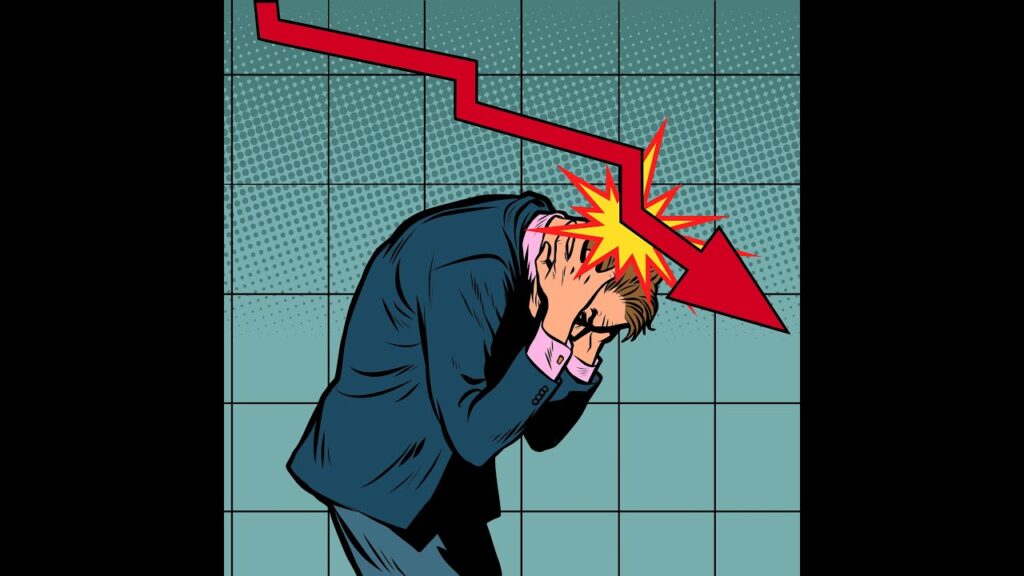Top 5 Mistakes New Traders Make

Table of Contents
Welcome to the jungle
The markets are a wild place. It’s a place where people leverage their own money with exposure for loss to make a gain, but if you’re on the wrong side, the guy on the other side is adding your money to his profit. This creates a free for all like atmosphere rife with fear, deception, greed, misinformation and more tricks people will use to get the market moving in the ways they want. It’s like a jungle out there. For those of us that have made our living in this enviorment you have to know how to hunt or you will be hunted.
It sounds daunting but don’t be discouraged. Wisdom, accessing useful information, good technique, discipline and a well reasoned plan are all invaluable survival skills. The reward for surviving in this jungle is profits that can make you more money than the majority of occupations on earth. Over almost 100 years, the stock market has generated over 47 Trillion dollars, helping it live up to it’s reputation as the greatest wealth creation invention of the decade. Just because there are risks doesn’t mean you should miss out on it.
It means you need to grow into a hunter of profits and shed your old skin as prey. Turbo Option Trading members gain the tools to become that hunter starting from their 5 day free trials, but for right now we will discuss avoiding the top 5 mistakes new traders make as a jumpstart to your transformation.
Top 5 mistakes new traders make
Top 5 Mistakes New Traders Make
Embarking on a journey into the jungle of trading can be exhilarating yet daunting for beginners. You’ll be like a newborn baby deer. With promises of financial freedom and the allure of quick gains, many individuals dive headfirst into trading without fully understanding the complexities involved. As a result, they often find themselves making common mistakes that can hinder their progress and potentially lead to substantial losses. We will delve into the top 5 mistakes new traders make most frequently and offer our insights on how to avoid them.
1. Lack of Proper Education
One of the most prevalent mistakes new traders make is diving into the markets without adequate education. Trading is not merely about buying and selling assets; it requires a deep understanding of market dynamics, technical analysis, fundamental analysis, risk management, and trading psychology. Without a solid foundation of knowledge, traders are essentially gambling rather than making informed decisions. To avoid this mistake, aspiring traders should invest time and effort in learning the intricacies of trading through reputable educational resources, courses, books, and mentorship programs.
2. Failure to Develop a Trading Plan
Another common pitfall for new traders is the absence of a well-defined trading plan. Without a clear strategy in place, traders are prone to making impulsive decisions based on emotions rather than rational analysis. A trading plan should encompass entry and exit criteria, risk management strategies, profit targets, and guidelines for evaluating market conditions. By outlining a structured approach to trading, individuals can mitigate risks and maintain discipline in their decision-making process.
3. Overleveraging
Overleveraging is a grave mistake that can quickly deplete a trader’s account. Many beginners fall into the trap of using excessive leverage to amplify their potential gains without fully understanding the associated risks. While leverage can magnify profits in favorable market conditions, it can also lead to significant losses, especially during periods of high volatility. New traders should exercise caution and avoid overleveraging their positions, opting for conservative leverage ratios to protect their capital.
4. Ignoring Risk Management
Effective risk management is paramount in trading, yet it is often overlooked by new traders who are focused solely on chasing profits. Failure to implement proper risk management techniques can result in catastrophic losses that are difficult to recover from. New traders should prioritize capital preservation by employing risk management strategies such as setting stop-loss orders, diversifying their portfolios, and adhering to position sizing principles. By managing risk effectively, traders can weather inevitable market fluctuations and sustain their trading endeavors in the long run.
5. Succumbing to Emotional Bias
Emotions play a significant role in trading, and new traders often struggle to keep them in check. Fear, greed, and FOMO (fear of missing out) can cloud judgment and lead to irrational decision-making. It is essential for traders to cultivate emotional discipline and stick to their trading plans regardless of market sentiment. Practicing mindfulness techniques, maintaining realistic expectations, and avoiding impulsive actions can help mitigate the influence of emotional bias on trading outcomes. This is why it’s crucial to have a team to bounce ideas off of and share information. For that purpose it’s helpful to have access to a live trading room.
Conclusion
In conclusion, new traders are susceptible to a myriad of mistakes that can impede their success in the financial markets. By recognizing and addressing these common pitfalls, individuals can enhance their trading proficiency and increase their chances of achieving long-term profitability. Through proper education, disciplined planning, risk management, and emotional resilience, aspiring traders can navigate the complexities of trading with greater confidence and competence.






